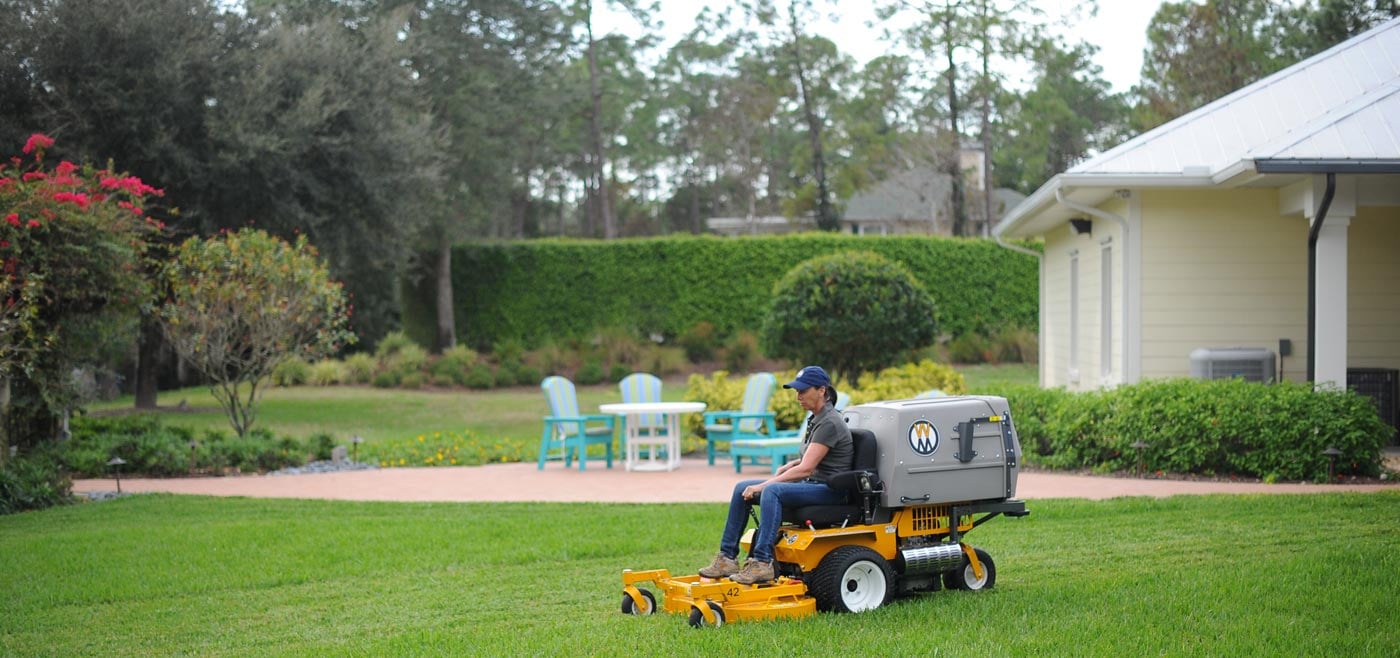Finding the right dealer is clearly as important as finding the right equipment The best equipment in the world will fall short of expectations if the selling dealer fails to back it up or offer critical support when the customer is in need.
Before buying your next piece of commercial equipment, ask the dealer about the support package that comes with it find out if you're buying just a mower or a total package that includes parts, service and a thorough understanding of the market in which you operate.
Consider the following when you buy your next mower. Remember, dealers, just like contractors, have their strengths and weaknesses, and not all of them will offer the same level of support. The key, however, is to do business with dealers who know the market and are responsive to the needs of their customers:
Service commitment - Downtime is money. Look for your dealer to have a priority service program in place for commercial customers, and a commitment to keep downtime to an absolute minimum. Find out if loaners can be made available if downtime exceeds 48 hours.
Understanding - Expect dealers to be knowledgeable about their products and those of the competitors, as well. This knowledge, however, should transcend basic feature/benefit information to include operating cost figures, operating capabilities as well as suggestions that help match a machine to an application.
Parts -There's more to service than meets the eye, and that includes shelves full of parts. But no matter how many parts a dealer stocks, a call will come in for items that aren't stocked. Your dealer should be prepared to emergency order parts. Depending on the circumstances, the cost of this special service may be directed back to the customer.
Programs - Look for dealers to have financing and leasing options available. Find out if you're in a position to establish a line of credit for parts and service, too. Expect a limit to be placed on any line of credit, and accounts will have to be kept current.
O - Look for your dealer to have special hours, especially during the busy season. Opening up a couple of hours early a few days a week will give operators a chance to pick up repaired units. Staying open an extra evening or two will allow drop-offs and an opportunity to pick up needed parts and accessories.
Rapport - Dealers aren't educators, but they're in a position to pass along helpful information about the operation and maintenance of equipment. Look for individual instruction as well as formalized classes on topics that range from safe operating procedures to preventive maintenance programs. More than a few dealers also sponsor occasional sessions on local environmental issues and important business topics.
Total commitment- Dealers can't be expected to carry a complete line of commercial products, but within the categories they have, e.g., intermediate walk-behind or riders, expect a full selection of basic deck configurations and drive systems. Expect them to make a commitment to their product lines, as well. Dealers who jump from one line to another find it difficult to provide consistent parts and service support.
There is another area where commercial dealers can offer support. Since equipment is the lifeblood for commercial users, and it is expensive, customers should be able to demonstrate the equipment prior to making a purchase decision. A good dealer will be eager to demonstrate to avoid the disappointment and lost reputation when a customer buys the wrong piece of equipment. Some dealers will let small hand-held equipment and push mowers out for an hour or two or for a day. Trying out bigger equipment is usually accomplished with the dealer or dealer representative nearby. This doesn't imply a lack of trust. More likely the dealer wants to be able to familiarize the customer with operating and safety procedures. Often, an on-the-job demonstration is necessary to make the right equipment selection. The best dealers will take the initiative to show equipment operating on the job.





 Site Search
Site Search



